Cornell-OFR Conference on Global Climate Finance and Risks
Published: July 18, 2024
Revised: June 20, 2025

Cornell University and the Office of Financial Research hosted a virtual conference, “Global Climate Finance and Risks,” on October 25, 2024. The event was open to the public. Views and opinions expressed during the conference are those of the presenters and do not necessarily represent official positions or policy of the Office of Financial Research or the U.S. Department of the Treasury.
Description
The intersection of climate change and financial risk is an area of increasing concern. As the impacts of climate change become more evident, there is growing interest in understanding how climate mitigation finance at scale can help reduce the potential systemic risks posed by both physical and transition-related climate threats to the financial system. These issues present challenges for policymakers, regulators, and financial practitioners.
This conference convened experts in climate finance from across academia, the public sector, and the financial sector to present research and participate in panel discussions. The goal was to provide insights into policies and strategies that contributed to the scaling of global climate finance, which potentially mitigated risks to the financial system. The role of governments, investors, macroprudential regulators, and development institutions in this context was a key focus, highlighting how these entities might have worked together to form a coherent approach to scaling global climate finance and mitigating risks. The conference featured keynotes, paper presentations, and roundtable discussions covering topics such as the science of climate risk assessment and economic measurement, the roles of various stakeholders in scaled climate finance, and how climate finance intersects with other policies, such as carbon taxation.
Conference Organizers
This conference was jointly organized by the Cornell SC Johnson College of Business, the Office of Financial Research, and the Cornell Atkinson Center for Sustainability. This partnership highlighted the organizers’ commitment to advancing understanding and solutions in global climate finance and risks.
Conference Chairs
Dean Andrew Karolyi, Cornell SC Johnson College of Business
Dr. Dasol Kim, Office of Financial Research
Dr. Alissa M. Kleinnijenhuis, Cornell SC Johnson College of Business, Imperial College London
| Time | Agenda Item | Speaker |
|---|---|---|
| Chair of Morning Sessions: Dasol Kim, Office of Financial Research | ||
| 8:30 a.m. | Opening Remarks | James Martin (Office of Financial Research) |
| 8:35 a.m. | Keynote | Johan Rockstrom (Potsdam Institute for Climate Impact Research) |
| 8:50 a.m. | Roundtable Discussion: Climate Science of Climate Risks and Economic Measurement | Moderator:
|
| 9:50 a.m. Break | ||
| 10:00 a.m. | Keynote | Bob Litterman (Kepos Capital) |
| 10:15 a.m. | Paper Panel Discussion: Climate Finance and Carbon Taxation | Moderator:
|
| 11:45 a.m. Break | ||
| Chair of Noon Session: Andrew Karolyi, Cornell SC Johnson College of Business | ||
| 12:00 p.m. | Keynote | Janet Yellen (US Department of the Treasury) |
| 12:15 p.m. | Roundtable Discussion: Governments and Global Climate Financing | Moderator:
|
| 1:15 p.m. Break | ||
| Chair of Afternoon Sessions: Alissa Kleinnijenhuis, Cornell SC Johnson College of Business, Imperial College London | ||
| 1:30 p.m. | Keynote | Eric Usher (UN Environment Programme) |
| 1:45 p.m. | Paper Panel Discussion: Investors and Global Climate Financing | Moderator:
|
| 3:15 p.m. Break | ||
| 3:30 p.m. | Keynote | Mark Carney (Brookfield Asset Management) |
| 3:45 p.m. | Roundtable Discussion: Macroprudential Policies and Global Climate Financing | Moderator:
|
| 4:45 p.m. | Closing Remarks | Andrew Karolyi (Cornell University) |
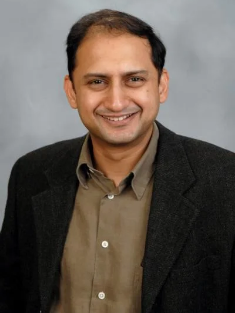
|
Viral V. Acharya is the C.V. Starr Professor of Economics in the Department of Finance at New York University Stern School of Business (NYU-Stern). He was a Deputy Governor at the Reserve Bank of India (RBI) from January 2017 to 23rd July 2019, in charge of Monetary Policy, Financial Markets, Financial Stability, and Research. He is a Research Associate of the National Bureau of Economic Research (NBER) in Corporate Finance, a Research Affiliate at the Center for Economic Policy Research (CEPR), and a Research Associate of the European Corporate Governance Institute (ECGI). He is or has been an Academic Advisor to the Federal Reserve Banks of Chicago, Cleveland, Kansas City, New York, Philadelphia, and the Board of Governors. He has provided academic expert services to the Bank for International Settlements, the International Monetary Fund, and the World Bank. He has been a Scientific Advisor to the Sveriges Riksbank since February 2024, a member of the Climate-related Financial Risk Advisory Committee (CFRAC) of the Financial Stability Oversight Council for 2023-26, an invited member of the Bellagio Group of academics and policy-makers from central banks and finance ministries since 2021, and a member of the Financial Advisory Roundtable (FAR) of the Federal Reserve Bank of New York since 2020. His primary research interest is in the theoretical and empirical analysis of systemic risk of the financial sector, its regulation, and its genesis in government- and policy-induced distortions, an inquiry that cuts across several other strands of research – credit risk and liquidity risk, their interactions and agency-theoretic foundations, as well as their general equilibrium consequences. In recent work, he has also studied the impact of pandemic and climate-change-related risks. |
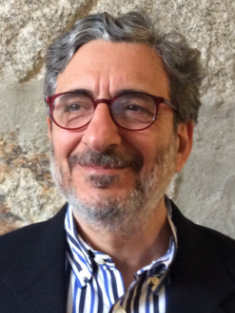
|
Izak Atiyas is an independent consultant and a research associate at the TUSIAD-Sabanci University Competitiveness Forum. He previously was an associate professor of economics at Sabanci University and the director of the Competitiveness Forum. He received his Ph.D. in economics from New York University in 1988. His research areas include climate finance, digitalization, productivity, industrial policy, competition policy, and regulation of network industries. |
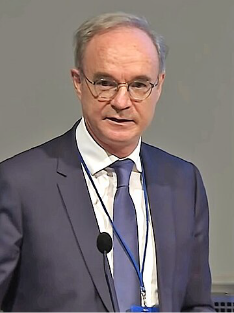
|
Patrick Bolton is a Professor of Finance at Imperial College London. Previously, he was the David Zalaznick Professor of Business at the Columbia Business School. He received his PhD from the London School of Economics in 1986 and holds a BA in economics from the University of Cambridge and a BA in political science from the Institut d'Etudes Politiques de Paris. |
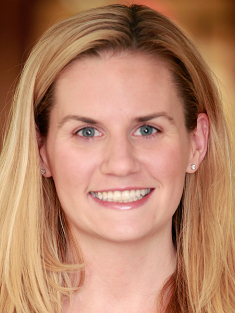
|
Sarah Bratton Hughes is a senior vice president and head of Sustainable Investing for American Century Investments. Sarah is responsible for driving and executing the firm’s sustainable investing strategy and overseeing the firm’s dedicated Sustainable Research team. She and her team serve as the center of sustainability expertise for all investment teams, implementing firmwide research and training, developing sustainability assessment tools, managing stewardship practices, and innovating client solutions. Before joining American Century Investments in 2022, Sarah was global head of sustainability solutions for Schroders, responsible for delivering innovative, best-in-class solutions to clients globally. Before that, she was head of sustainability for North America. In this role, Sarah led the strategic development and execution of sustainability initiatives. She was also responsible for ESG integration for all North American-based investment teams, including equities, fixed income, and private assets. Previously, Sarah served as an investment director at Schroders, representing and articulating the firm’s value proposition for both U.S. equities and sustainability to clients globally. Before that, she worked at Schroders as an associate product manager and a product executive. Before joining Schroders, Sarah held J.P. Morgan Asset Management and JP Morgan Chase roles. She has worked in the industry since 2007. Sarah earned bachelor’s degrees in economics and business management from St. Francis College. In 2023, Sarah was recognized as one of Crain's New York Business's Notable Leaders in Sustainability. She was also named to Crain’s list of Notable Women on Wall Street in 2022 and 2021 and won the Markets Media Women in Finance award for Excellence in Sustainability in 2021. Additionally, Sarah has authored thought leadership and insights on U.S. sustainability policy and social sustainability topics globally. |
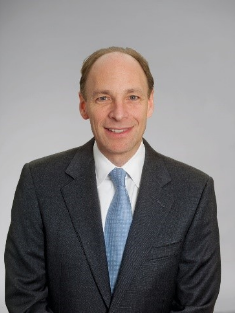
|
Richard Cantor is Vice Chairman at Moody’s Ratings and focuses on credit market issues and climate-related analytics. From 2008 to 2022, Mr. Cantor was Moody’s Chief Credit Officer, responsible for the rating agency’s credit strategy, thematic research, models, and methodologies. From 2009 to 2019, Mr. Cantor also served as Moody’s Chief Risk Officer. Mr. Cantor currently chairs the U.S. National Committee of the Pacific Economic Council (PECC) and co-chairs PECC International. He was appointed by the U.S. State Department to a three-year term as a member of the Asia-Pacific Economic Cooperation Business Advisory Council, during which he chaired its Financial and Economic Working Group. Prior to joining Moody’s, Mr. Cantor held a variety of positions in the Federal Reserve System and taught economics New York University, Columbia University, UCLA, and Ohio State University. He holds a BA degree from Tufts University and a PhD in Economics from Johns Hopkins University. |
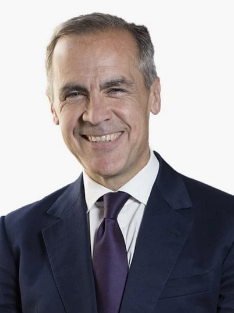
|
Mark Carney is the UN Special Envoy for Climate Action and Co-Chair for the Glasgow Finance Alliance for Net Zero, a practitioner-led coalition working to increase the financial sector’s ambition on climate change and accelerate the transition to a net-zero economy. Chair of Brookfield Asset Management, and Head of Transition Investing at Brookfield Corporation. Mark is Co-Chair of the Industrial Transition Accelerator (ITA), as well as Chair of the Group of Thirty and Chair, Bloomberg. Previously, Carney served as the Governor of the Bank of England and Governor of the Bank of Canada. Internationally, he was Chair of the Financial Stability Board (2011 to 2018), Chaired the Global Economy Meeting and Economic Consultative Committee of the Bank for International Settlements, and served as First Vice Chair of the European Systemic Risk Board. |
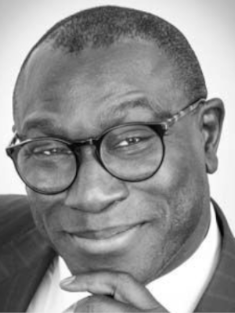
|
Dr. Hubert Danso, Chairman and Chief Executive Officer of Africa Investor (Ai) Group, a pan-African infrastructure Investment Holding Company for institutional investors. He also serves as the Chairman of the CFA New York Society Global Asset Owners’ Advisory Council and the Chairman of the African Sovereign Wealth and Pension Fund Leaders Forum. He is the African Union’s Continental Business Network (CBN) Chair and the African Green Infrastructure Investment Bank Advisory Board Chair. He also serves on the Accounting for Sustainability (A4S) Advisory Council and is Co-Chair of the Smi Africa Council, established by King Charles III. He also serves on the World Benchmarking Alliance Just Transition Advisory Group. He is an Advisory Board Member of UNDP’s Africa Green Business and Financing Initiative and the Sustainable Development Goals (SDG) Investor Map. He leads AI’s Pension and Sovereign Wealth Infrastructure Co-investment platform and advises corporates, institutional investors, governments, and development finance institutions on Africa's ESG trends, infrastructure allocations, and private equity investments. Dr. Danso was instrumental in establishing the African Union’s 5% Agenda Institutional Infrastructure Investment Allocations Initiative, for Pension and Sovereign Wealth Fund infrastructure investors. Dr. Danso holds an LLB in Business Law, an LLM Masters in International Commercial Law from the University of Sussex in England and a doctorate in Global Leadership from the European International University in France. |
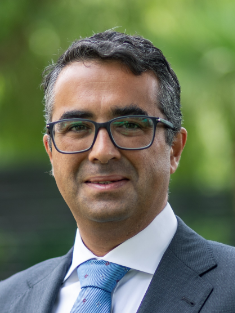
|
Nuno Fernandes is a full professor of finance at IESE Business School. He is also Chairman of the Audit Committee at the European Investment Bank, the Managing Partner at Odgers Berndtson Board Solutions, where he focuses on helping boards establish and maintain strong corporate governance, and a Research Associate of the European Corporate Governance Institute. His particular areas of interest are corporate finance, climate finance, mergers and acquisitions, corporate governance, banking, and financial strategies. From 2018 to 2023, he was the Chairman of the Board of Auditors at the Portuguese Central Bank (Banco de Portugal). Before joining IESE, he was the Dean of Católica Lisbon. In addition, for a decade, he was Professor of Finance at IMD (Lausanne, Switzerland). Professor Fernandes holds a doctorate in Business Administration (Finance) from IESE Business School and a degree in Economics from the Universidade Católica Portuguesa. He has received numerous teaching and research distinctions as an expert in valuation, international financial markets, and emerging market risks. He has published in some of the leading international academic journals, including the Journal of Financial Economics, Review of Financial Studies, Journal of International Business Studies, Journal of Financial Intermediation, Journal of Applied Corporate Finance, Journal of Portfolio Management, and Harvard Business Review. He is a speaker at business conferences worldwide and a regular contributor to international media such as the Financial Times and Wall Street Journal. He is also the author of several books and book chapters, including Finance for Executives: A Practical Guide for Managers (Second Edition), The Value Killers: How Mergers and Acquisitions Cost Companies Billions—And How to Prevent It, and his latest book Climate Finance. His work has been awarded various awards, including a grant from the FDIC. In 2008, he received the Lamfalussy Fellowship, an award given by the European Central Bank to the world's best researchers in finance. In 2015, he received the “Best Paper of the Year Award” in the Journal of Financial Intermediation. In 2022, he won the award as “Outstanding Teacher” in The Case Center's global competition, also known as “the Oscars of Business Education.” Throughout his career, Professor Nuno Fernandes has advised the boards and C-suites of companies and financial institutions in Asia, Europe, Latin America, and the Middle East on corporate governance, economic strategy, mergers & acquisitions, and sustainability. |

|
Geoff Heal, Donald C. Waite III Professor Emeritus of Social Enterprise at Columbia Business School Geoffrey Heal, Donald C. Waite III Professor Emeritus of Social Enterprise at Columbia Business School, is noted for contributions to economic theory and resource and environmental economics. He holds bachelor's (first class), master's, and doctoral degrees from Cambridge University, where he studied at Churchill College and taught at Christ’s College. He has also taught at Sussex, Essex, Yale, Stanford, École Polytechnique, Stockholm, and Princeton. He holds an Honorary Doctorate from the Université de Paris Dauphine. Author of eighteen books and about two hundred articles, Professor Heal is a Fellow of the Econometric Society, past Managing Editor of the Review of Economic Studies, Past President of the Association of Environmental and Resource Economists, recipient of its prize for publications of enduring quality and a Life Fellow, recipient of the 2013 Best Publication Prize of the European Association of Environmental and Resource Economists, a Director of the Union of Concerned Scientists and a founder and Director and chairman of the Board of the Coalition for Rainforest Nations, developers of the REDD policy for reducing deforestation by awarding carbon credits for forest conservation. Recent books include Nature and the Marketplace, Valuing the Future, When Principles Pay, and Whole Earth Economics (forthcoming). Professor Heal chaired a committee of the National Academy of Sciences on valuing ecosystem services, was a Commissioner of the Pew Oceans Commission, was a coordinating lead author of the IPCC’s Fifth Assessment Report, was a member of President Sarkozy’s Commission on the Measurement of Economic Performance and Social Progress, was a member of the advisory board for the World Bank’s 2010 World Development Report and the United Nations Environment Program’s 2011 Human Development Report, and acts as an advisor to the World Bank on its Green Growth project. He is also a Director of Public Business, a foundation that promotes in-depth public interest journalism, and a member of the Advisory Board of Green Seal. Details at: https://geoffreyheal.com/. |

|
Marcin Kacperczyk is a Professor of Finance at Imperial College London. He has research interests in investments, information economics, financial intermediation, and financial econometrics. His research has been published in leading academic and practitioner journals, including Econometrica, Quarterly Journal of Economics, Journal of Finance, Journal of Financial Economics, and Review of Financial Studies. |
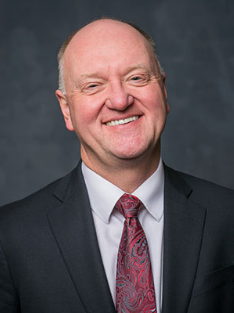
|
Andrew Karolyi is the Charles Field Knight Dean of the Cornell SC Johnson College of Business. Also the Harold Bierman, Jr. Distinguished Professor of Management, he is a scholar of investment finance with a specialization in the study of international financial markets. Karolyi has published extensively in journals in finance and economics, including the Journal of Finance, Journal of Financial Economics and Review of Financial Studies, and has published several books, including International Capital Markets (2003) and Cracking the Emerging Markets Enigma (2015). His research has been featured in print and electronic media, including The Wall Street Journal, Financial Times, The Economist, New York Times, Washington Post, Forbes, BusinessWeek, and many others. |
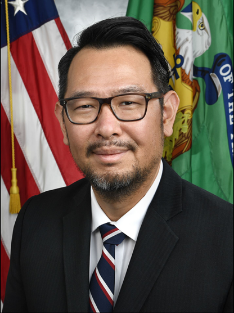
|
Dasol Kim is a Research Principal at the Office of Financial Research. His work centers on the banking sector, financial intermediation, and behavioral finance. He holds a doctorate in financial economics from the Yale School of Management, a master’s degree in statistics from Columbia University, and a bachelor’s degree in mathematics and economics from the University of California, Los Angeles. Prior to earning his doctorate, he served as a research and teaching fellow at Stanford Law School. |
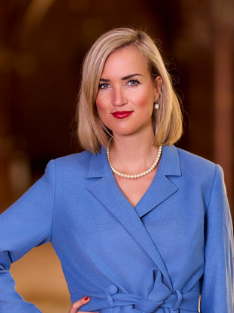
|
Alissa M. Kleinnijenhuis is a visiting assistant professor of finance at the Cornell SC Johnson College of Business and is affiliated with the finance department at the Imperial College Business School of Imperial College London. Kleinnijenhuis is a research associate at the Institute for New Economic Thinking (INET) at the Oxford Martin School of the University of Oxford, a non-resident fellow at Bruegel (an EU think tank specializing in economics), a RPN member of Sustainable Finance at the Centre for Economic Policy Research (CEPR), and a faculty fellow of the Cornell Atkinson Center for Sustainability. She taught a new, and first, course at Stanford University on climate finance. In fall 2023, she taught the inaugural Climate Finance course at the Johnson School. |

|
Professor Tim Lenton is the founding Director of the Global Systems Institute at the University of Exeter and Chair of Climate Change and Earth System Science. He has more than 25 years of research experience, focused on modeling the biosphere, climate, biogeochemical cycles, and associated tipping points. Tim is renowned for his work identifying climate tipping points, which informed the setting of the 1.5C climate target, associated net zero targets, and nationally determined contributions. Tim works with policymakers and businesses, helping them assess the risks of climate change and nature loss and highlighting the opportunities for ‘positive tipping points’ that can accelerate change towards net zero. In 2023, Professor Lenton led a team of more than 200 people from over 90 organizations in 26 countries to produce an authoritative assessment of the risks and opportunities of both negative and positive tipping points in the Earth system and society. The ‘Global Tipping Points Report’ produced in partnership with Bezos Earth Fund was published at COP28. |
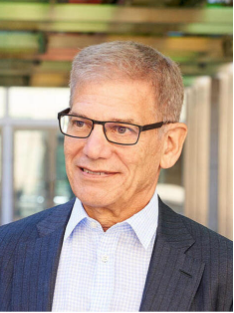
|
Robert Litterman is the Chairman of the Risk Committee, Chairman of Climate Policy, and a founding partner of Kepos Capital LP. Prior to joining Kepos Capital in 2010, Litterman enjoyed a 23-year career at Goldman, Sachs & Co., where he served in research, risk management, investments, and thought leadership roles. He is the co-developer of the Black-Litterman Global Asset Allocation Model, a key tool in investment management. Litterman earned a Ph.D. in Economics from the University of Minnesota and a B.S. in Human Biology from Stanford University. He was inducted into Risk magazine’s Risk Management Hall of Fame and named the 2013 Risk Manager of the Year by the Global Association of Risk Professionals. In 2012, he was the inaugural recipient of the S. Donald Sussman Fellowship at MIT's Sloan School of Management. In 2008, Litterman received the Nicholas Molodovsky Award from the CFA Institute Board as well as the International Association of Financial Engineers/SunGard Financial Engineer of the Year Award. |
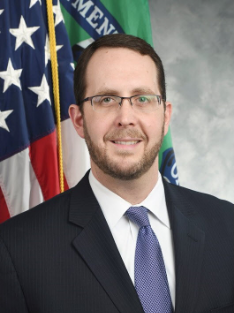
|
James Martin is the Acting Director of the OFR. Mr. Martin’s permanent position as of October 2024 is as the Principal Deputy Director responsible for supporting the Director in leading the Office by overseeing internal controls, enterprise risk management programs, and working with the Deputy Directors to implement the OFR Director’s priorities in achieving the OFR’s mission. From 2019 to 2024, Mr. Martin served as OFR’s Deputy Director for Operations and Chief Operating Officer. Prior to joining the OFR in June 2016, Mr. Martin held a number of leadership roles in the U.S. Department of the Treasury, and he served for nearly 20 years in a variety of federal operational, information collection, and analysis roles within the national security community. He has a master's degree and a bachelor's degree, both in business administration. He also holds an executive certificate in international business management and is a graduate of the Treasury’s Senior Executive Service Candidate Development Program. He is a veteran of the U.S. Air Force. |
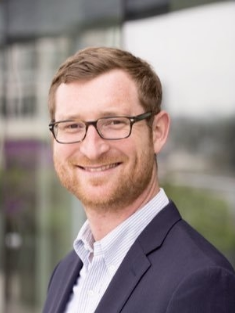
|
Martin Oehmke is a Professor of Finance at the London School of Economics and a research fellow at CEPR. His main research interests are sustainable finance, financial intermediation, and corporate finance. Martin is a member of the Advisory Scientific Committee of the European Systemic Risk Board and has served on the editorial board of the Review of Economic Studies and the Journal of Finance. He was president of the Finance Theory Group, is a past winner of the Brattle Distinguished Paper Award, and is the recipient of an ERC Starting Grant. |
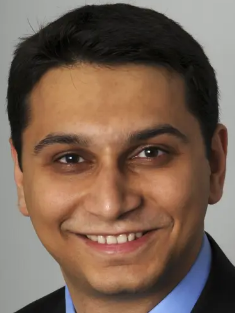
|
Dr. Sanjay Patnaik is the Director of the Center on Regulation and Markets (CRM), the Bernard L. Schwartz Chair in Economic Policy Development, and a senior fellow in Economic Studies at Brookings. He is also a fellow of the Initiative for Sustainable Energy Policy (ISEP) at Johns Hopkins University. His research focuses on climate policies (specifically carbon pricing), business and government relations, corporate political strategy, globalization, and international business. He is particularly interested in emissions trading programs, their role in mitigating climate change, and their effect on firm behavior. As an applied economist, Sanjay earned his doctorate at Harvard University and holds a master’s degree in economics and computer science and a master’s degree in business engineering and computer science, both from the Vienna University of Technology in Austria. |
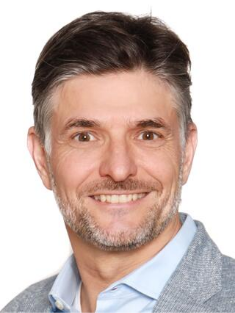
|
Lasse Heje Pedersen is a professor at Copenhagen Business School, director of the BIGFI center, and a principal at AQR. A Stanford PhD, he has served as Director of the American Finance Association, in the Liquidity Working Group meeting at the Federal Reserve Bank of New York to address liquidity issues, on the Economic Advisory Boards of NASDAQ and FTSE, and several editorial boards, including the Journal of Finance and Quarterly Journal of Economics. His academic awards include the Bernácer Prize for the best E.U. economist under 40 years of age, the Banque de France-TSE Prize, the Stephen A. Ross Prize, JF Brattle and DFA Prizes, JFE Fama-DFA Prizes, RFS Michael Brennan Award, and FAJ Graham and Dodd Top Awards. His research is widely used by academics, practitioners, and regulators, e.g., in the Nobel Prize committee’s scientific background and the most cited paper in SEC regulation. |

|
Lin Peng is the Krell Chair Professor of Finance at Baruch College, City University of New York, and holds a visiting professorship at Princeton University. Her expertise includes ESG sustainability and social finance. Prof. Peng's research has been published in top academic journals and featured by the Wall Street Journal, Financial Times, and Reuters. She has been named an honoree of AACSB's 2024 Influential Leaders for her research, advancing new knowledge, and creating impact in business and society. Prof. Peng has delivered seminars at global regulatory agencies such as the SEC, Federal Reserve, European Securities and Markets Authority, Bank of England, and leading universities worldwide. She is an associate editor for Management Science and the Journal of Empirical Finance. She is a management committee member for the Keynes Fund for Applied Economics at Cambridge. Prof. Peng holds an MA in Biology from Wesleyan and a PhD in Finance from Duke. |
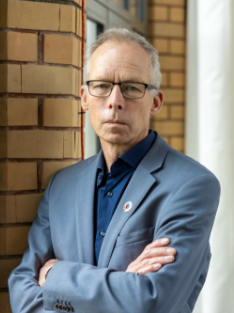
|
Johan Rockström is an internationally recognized scientist on global sustainability issues. He has gained international recognition with the development of the Planetary Boundaries framework. This framework is a standard of sustainability science. Rockström is a leading scientist on global water resources. He has more than 25 years experience in applied water research in tropical regions, and more than 150 research publications in fields ranging from applied land and water management to global sustainability. |
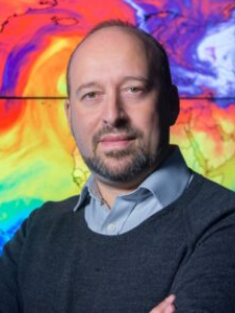
|
Gavin Schmidt is the Director of the NASA Goddard Institute for Space Studies in New York and was the acting Senior Climate Adviser to the NASA Administrator in 2021. He currently works on the simulation of climate in the past, present, and possible future and has over 150 peer-reviewed publications. He was the author of Joshua Wolfe of “Climate Change: Picturing the Science” in 2009, and in 2011 was the inaugural recipient of the American Geophysical Union (AGU) Climate Communication Prize. He is a fellow of the AGU and the American Association for the Advancement of Science. |
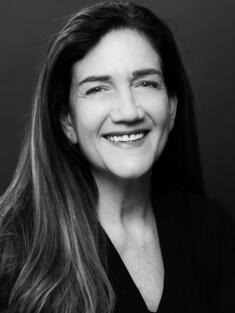
|
Dr. Rebecca Shaw is the Chief Scientist and Senior Vice President at WWF. She works with experts worldwide to identify emerging challenges to WWF’s mission and advance scientific inquiry to develop strategic solutions. She leads WWF’s Global Science team, whose research agenda informs WWF’s global conservation framework and identifies tools critical to achieving WWF’s goals. She has been published widely in leading peer-reviewed scientific journals such as Science and Nature and has received numerous awards for her academic and non-academic work. She was also a lead author on the Intergovernmental Panel on Climate Change's Fifth Assessment Report focused on impacts, adaptation, and vulnerability. Dr. Shaw holds an M.A. in environmental policy and a Ph.D. in energy and resources from the University of California, Berkeley. |
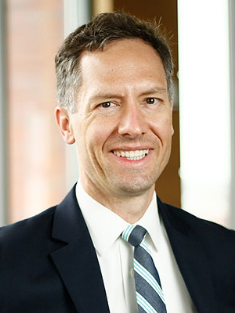
|
Luke Taylor is the John N. Neff Professor in Finance at the Wharton School of the University of Pennsylvania. His research focuses on sustainable investing, fund management skills, and corporate finance structural estimation. Luke has received the Moskowitz Prize for research in sustainable finance, the Fama/DFA Prize for best paper in the Journal of Financial Economics, the AQR Insight Award for Distinguished Paper, and others. Professor Taylor coordinates Wharton's PhD program in finance and is an associate editor at the Journal of Financial Economics and Review of Finance. |
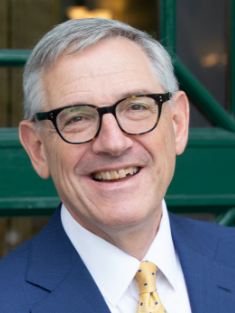
|
Peter Tufano is a Baker Foundation Professor at Harvard Business School and Senior Advisor to Harvard’s Salata Institute for Climate and Sustainability. His current work focuses on climate finance, climate alliances, and the impact of extreme weather on household finances. With colleagues, he has launched the free global virtual doctoral reading group, The Financial Economics of Climate and Sustainability, which in 2024 reached doctoral students in over 130 schools. He is the co-editor of the new SSRN e-journal, Climate Finance, which launched in September 2024. From 2011-2021, Tufano was Dean of the University of Oxford’s Said Business School, where he championed an approach that augmented traditional business education with considerations of systems leadership to address major global challenges. Before 2011, he was a professor at Harvard Business School for over two decades, where his work included financial innovation, financial engineering, and household finance. |
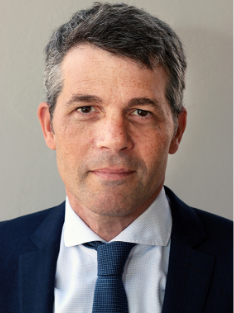
|
Eric Usher heads the [UN Environment Programme Finance Initiative](https://www.unepfi.org/), UNEP FI, a global partnership bringing together the UN with a global group of banks, insurers and asset managers working to develop the sustainable finance and responsible investment agendas. Eric oversees governance, strategy and day-to-day management of UNEP FI’s work programme and global network development. Over the years UNEP FI has established some of the most important sustainability oriented frameworks within the finance industry, including the Principles for Responsible Investment (2006), the Principles for Sustainable Insurance (2012) and the Principles for Responsible Banking (2019). Since joining in 2015, Mr. Usher has focused on accelerating the deep integration of sustainability risks into financial practice, including addressing climate change, natural capital loss and human rights abuses, as well as building out the frameworks for positive impact finance needed to achieve the UN Sustainable Development Goals. Eric sits on several industry bodies including as UN representative on the Board of the Principles for Responsible Investment, and as a member of the governing boards of the Sustainable Stock Exchanges Initiative, the Net-Zero Asset Owner Alliance, the Investor Agenda and the impact fund REPP Africa. Prior to leading UNEP FI, Mr. Usher has over twenty years of experience in the low carbon sectors, spanning technology commercialization in Canada, solar rural electrification in Morocco and financial sector development across emerging markets. During 2011, Mr. Usher worked on the establishment of the Green Climate Fund and led efforts to create its Private Sector Facility. Eric has been an editor of the Global Trends in Renewable Energy Investment report published annually with Bloomberg and was lead author for finance of the IPCC Special Report on Renewable Energy Sources. Earlier in his career, Eric was General Manager of a solar rural electrification company based in Morocco. |
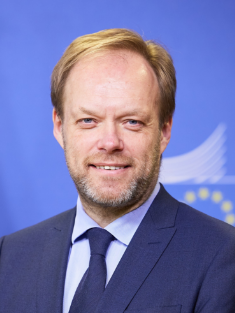
|
Kurt Vandenberghe was appointed Director General of DG CLIMA on 16 January 2023. Until then, he had been President Ursula von der Leyen's Green Deal and Health advisor since 1 December 2019. He joined the cabinet of the President coming from DG Research and Innovation, where he was Director for Policy & Programming since 1 February 2016 and Acting Director for Research & Innovation Outreach since 1 June 2019. Before that, he was Director for 'Climate action and resource efficiency' at DG Research and Innovation since July 2013. He served in the Cabinet of Research Commissioner Philippe Busquin (1999-2004) and as Head of the Cabinet of Janez Potočnik, who was Commissioner for Research and Innovation (2004-2009) and subsequently for Environment (from 2010). Kurt joined the European Commission in 1996 as co-ordinator of the Commission’s Intermodal Transport Task Force and of the Transport Research Programme. Before entering the Commission, Kurt worked four years as a manager at Ernst & Young Association Management, setting up, managing, and representing international trade associations. After reading French and Italian literature at the Katholieke Universiteit Leuven (KUL) and obtaining a degree in Public and International Affairs at the University Catholique de Louvain-la-Neuve (UCL), Kurt gained a Master of Arts degree in International Relations at the Johns Hopkins University School of Advanced International Studies (S.A.I.S.) in Bologna, Italy and Washington D.C., US. |
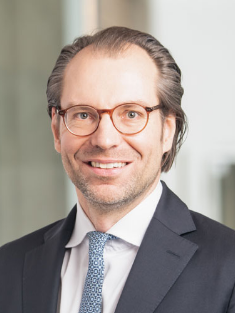
|
Alexander Wagner is a Professor of Finance at the University of Zurich and a Senior Chair at the Swiss Finance Institute. He earned his PhD from Harvard University and degrees in economics and law in his hometown, Linz, Austria. Details at: https://www.df.uzh.ch/en/people/professor/wagner.html. |
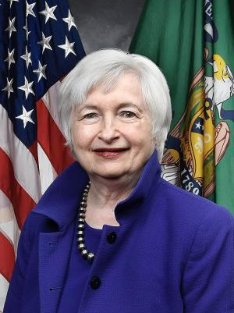
|
Janet Louise Yellen is the 78th United States Secretary of the Treasury. She previously served as the 15th chair of the Federal Reserve from 2014 to 2018. She is the first woman to hold either post, and has also led the White House Council of Economic Advisers. Yellen is the Eugene E. and Catherine M. Trefethen Professor of Business Administration and Economics at the University of California, Berkeley. |

|
Dr. Federica Zeni works as an economist in the finance division of the World Bank Development Research Group. Her research focuses on corporate finance and sustainable finance. She holds a PhD in finance from Imperial College London. |

|
Jeromin Zettelmeyer is the Director of Bruegel (since 2022) and a CEPR research fellow. His recent work has focused on reform of the EU fiscal framework, public debt sustainability, economic security, and north-south climate finance. Jeromin was previously a Deputy Director of the Strategy and Policy Review Department of the International Monetary Fund (IMF), Senior Fellow at the Peterson Institute for International Economics (2016-19), Director-General for Economic Policy at the German Federal Ministry for Economic Affairs (2014-16); Director of Research and Deputy Chief Economist at the European Bank for Reconstruction and Development (2008-2014), and an IMF staff member (1994-2008). He holds a Ph.D. in economics from MIT. |
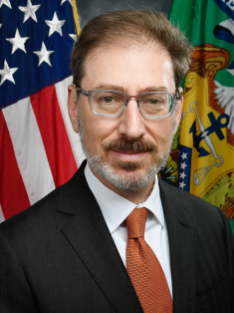
|
Ethan Zindler serves as the Treasury Department’s Climate Counselor and leads the Treasury Climate Hub. Zindler reports directly to and advises the Secretary on a broad range of climate matters, and is charged with leading Treasury’s efforts to facilitate and unlock the financing needed for investments to achieve a net-zero economy at home and abroad. Zindler holds an MBA from Columbia Business School and a BA from Georgetown University. |
Contact
If you have any questions, please contact us at climateconference@business.cornell.edu.